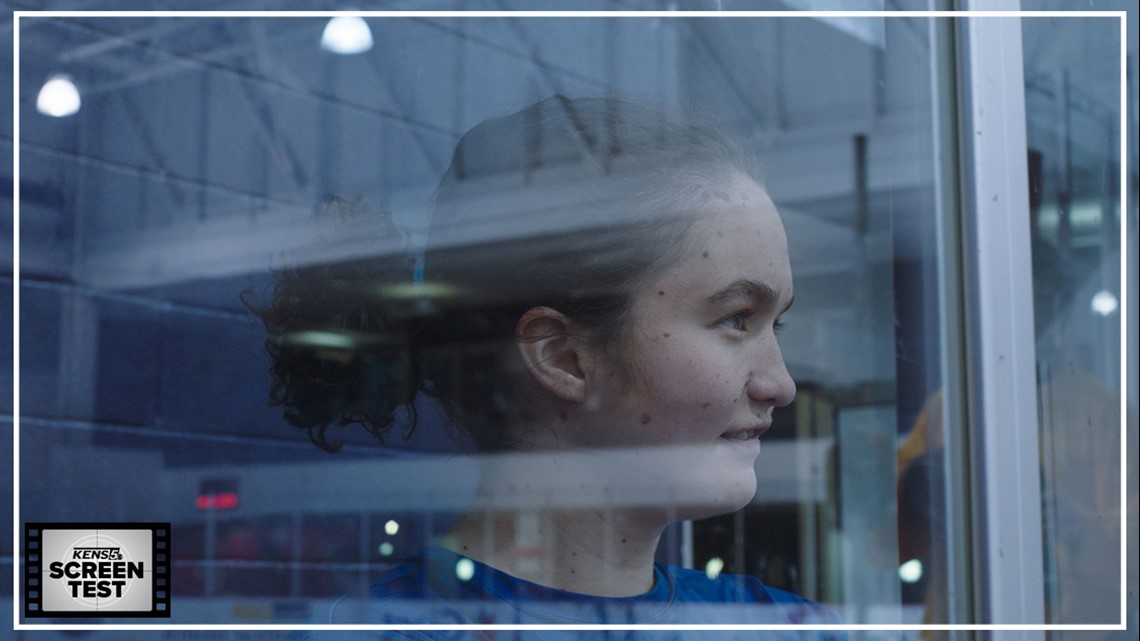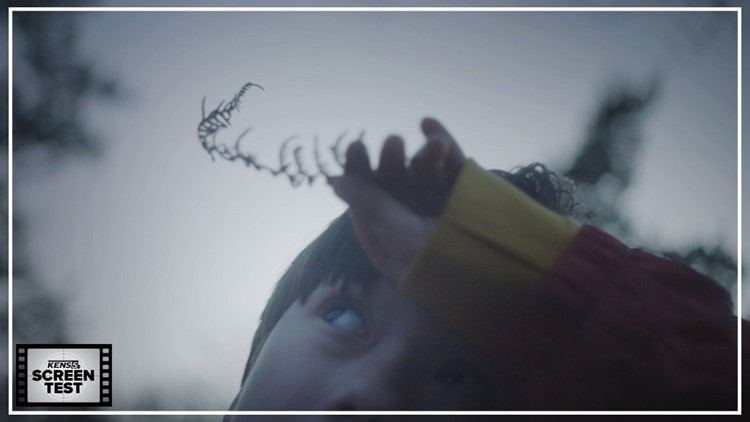SAN ANTONIO — Tell someone that the documentary they’re about to watch is an education on the experiences of those diagnosed with autism, and their expectation may be a movie of convention—of clearly defined talking head subjects and a rigid structure that more effectively snoozes rather than informs.
Not so in the case of director Jerry Rothwell’s captivating and occasionally cosmic new effort “The Reason I Jump,” which benefits from some remarkable source material in the form of Naoki Higashida’s 2007 book of the same name to address direct queries with poetic coherence and a light metaphysical touch. In that hugely successful book (which has also, it should be noted, been met with some skepticism over the context of its creation), the then-teenage Higashida attempts to enlighten readers about how an autistic person sees the world by answering a series of common questions. Attempts at communication, he writes, are like “drowning in a flood of words.” Elsewhere, Higashida says memories float through his mind like a sea of dots rather than flowing along a chronological current.
To say this prose finds its way into Rothwell’s movie (via translated voiceover from the actor Jordan O’Donegan) would be understating things. More demonstrably, Higashida’s writing informs the documentary’s stylistic approach, somewhat justifying its boneless structure as Rothwell transposes the book’s firsthand accounts against vignettes of several autistic individuals’ daily lives. As one teenager suddenly recounts details of years-old, O’Donegan recounts Higashida’s musings about the boundlessness of time. As a girl elsewhere, accompanied by a spirited score, toys with the same gadget over and over, we listen as Higashida explains how comfort is found in repetition. During a market visit in India, the cinematography gorgeously focuses on the most minute of observations – pedaling feet operating machinery, food simmering loudly on hot griddles, peppers lying in some place that seems unreachable – after we’ve learned that Higashida tends to zero in on the details one by one so that “gradually the whole image comes into focus.”
It’s easy to assume the filmmaker’s motivations here stem from a belief that moving images could further or better explain autism in a way that words cannot, and when “The Reason I Jump” synergizes the micro with the macro in these sequences – using cinema to simultaneously describe and emphasize a particular experience – that belief is movingly realized. Interweaving the movie’s overlapping chapters are staged sequences of a young child exploring barren beaches and under grandiose stone bridges in sojourns that echo the stuff of fantasy. The implication is that this boy is a stand-in for Higashida himself (who we never see on-screen), but the certainty is that it makes the documentary’s eagerness for aesthetic abstraction that much more apparent. At times, our visits with this lonely boy borders on the profound, as if some interdimensional rendezvous had been agreed upon.
The downside of Rothwell’s approach, though not a lethal one, is that it can yield a cognitive dissonance between those we see and the person we only hear in the voice of another. And while Higashida’s syntax contextualizes how those with autism navigate daily life, it can only do so much to deepen our connection to them as individuals. Thus, when we hear the requisite testimony of a relative or the movie cuts awkwardly to a tantrum, it can feel ramshackle and insincere. When a Sierra Leone couple briefly vents frustration about the stigmas clearly visible in neighbors’ eyes when they walk by with their autistic daughter, the film is clearly attempting to cover a lot of consequential ground in a few short strides. Paradoxically, “The Reason I Jump” impressively closes the gap of misunderstanding autism while mostly keeping its specific subjects at a distance. Perhaps it’s because of the movie’s briefness (it’s 82 minutes long) that we’re never convinced Rothwell’s curiosity is as ample or insightful as Higashida’s writing.
The brief time we spend with Ben and Emma, two longtime Virginia friends who both have autism, most stridently rises above this structural fault. Their perspectives shine through in a way that’s refreshingly frank, and it’s no coincidence that their interactions on walks, at hockey games and in a special needs school are most likely to challenge your perspectives of autism; assuming Ben and Emma don’t know about others’ presumptions would certainly be a mistake. We may only spend a short window of time with them, but these friends’ search for clarity – not for themselves, but for the improved understanding of others – is potent and powerful. It’s the documentary’s most triumphant moment of pure observation when we watch Ben take to an alphabet board to relay the meatiest political sentiment to be found in this work.


Likewise, I suspect it isn’t happenstance that Rothwell decides to return to Ben down the line once more, at a moment when Higashida wonders about the documentary’s central contradiction: As much as “The Reason I Jump” crystallizes certain sights and heightens certain sounds to translate an autistic person’s viewpoint, it can only ever be an approximation. To his credit, Rothwell doesn’t intend to prove otherwise. Instead, you may very well find yourself enticed by the suggestion that making the effort to better understand autism – a resolution “The Reason I Jump” certainly succeeds in assisting – also means crafting our own polished considerations of the world around us. It is, after all, the very same one he, Ben and Emma live in. There’s merely a difference in the things that cause us to jump about it.
“The Reason I Jump” is not rated. It’s available to stream via Kino Marquee virtual cinemas now.
Directed by Jerry Rothwell
2021
MORE SCREEN TEST REVIEWS:
- ‘I Blame Society’ Review: Cheeky movie-within-a-movie experiment will keep you on your toes
- ‘News of the World’ Review: Tom Hanks travels across post-Civil War Texas in airy, occasionally intelligent Western
- ‘Soul’ Review: Pixar prioritizes concept over character in its most literal meaning-of-life tale yet
- ‘Another Round’ Review: Mads Mikkelsen experiments with endless drinking in bittersweet Danish drama
- ‘Farewell Amor’ Review: Ekwa Msangi’s tale of African immigration is modest and contemplative
- ‘Let Them All Talk’ Review: Steven Soderbergh takes a vacation, returns with a delightful romp about art and life
- The best movies of 2020



